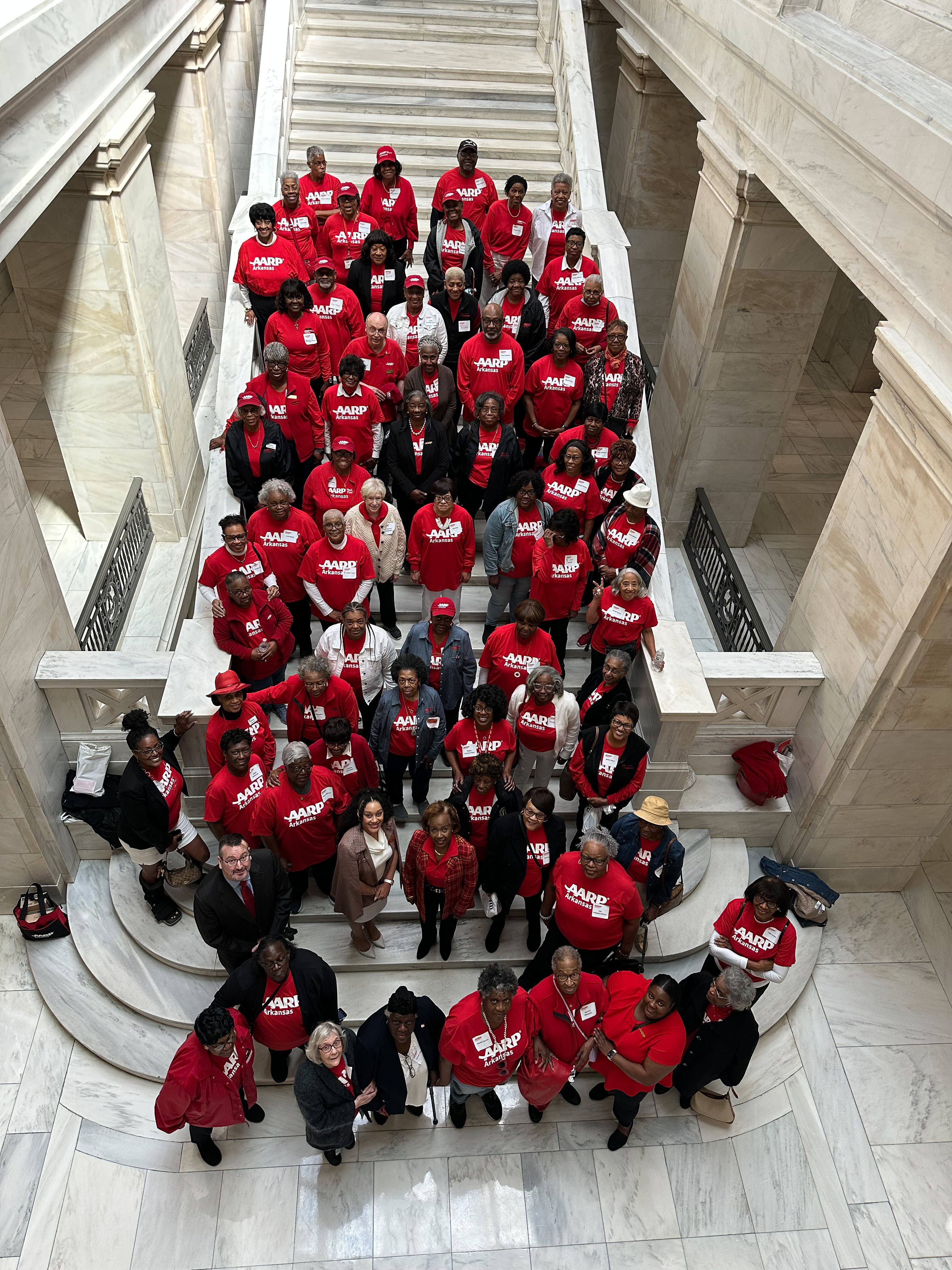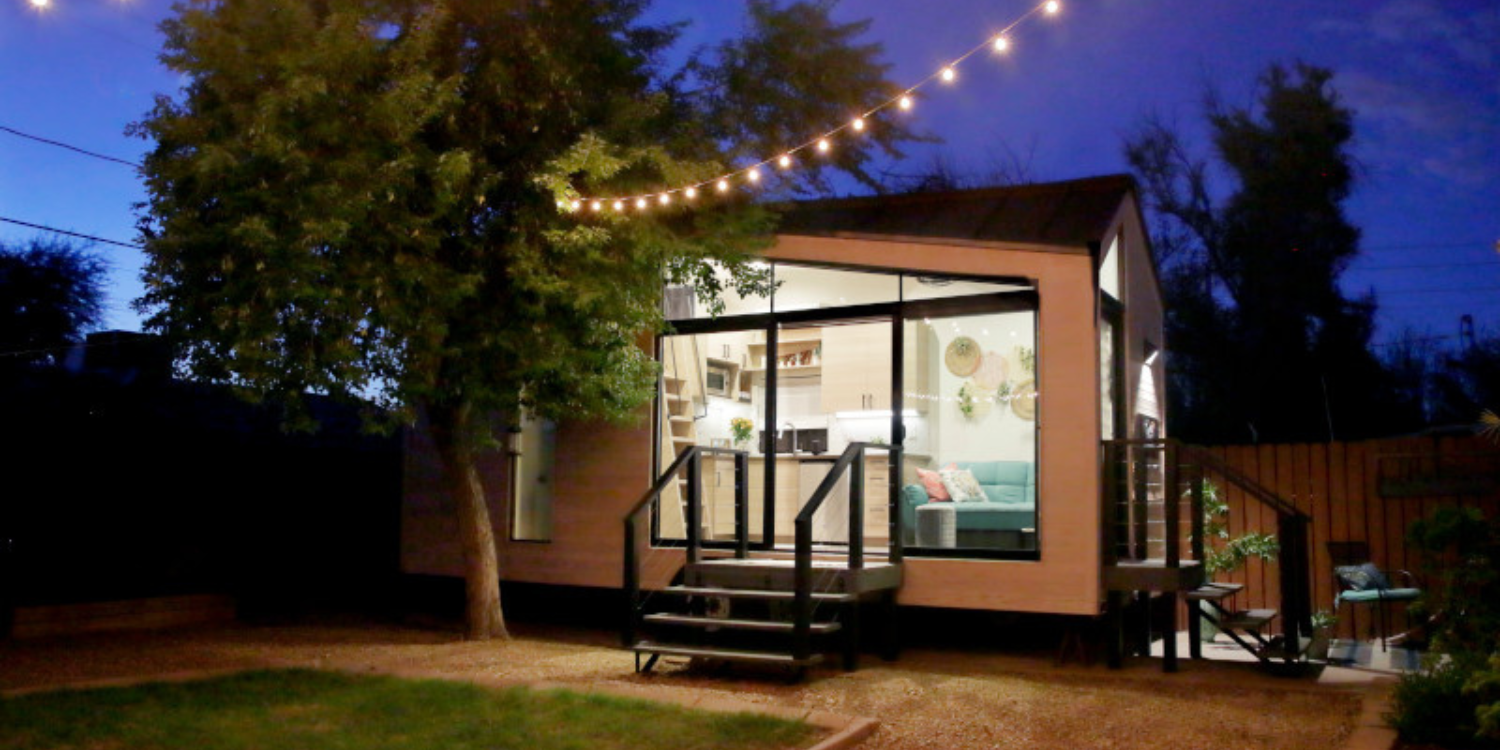AARP Hearing Center

The 95th General Assembly convened on Monday, January 13, 2025, and adjourned sine die on Monday, May 5, 2025. For nearly five months under the dome, lawmakers shaped the next few years in our state by approving or denying measures they reviewed.
What does sine die mean? It’s Latin for "without a date," so in our case, it’s the conclusion of the assembly without setting a date to reconvene.
AARP and AARP Arkansas State Office, our Advocacy Team (A-Team), and our Veterans Team should be incredibly proud of our combined efforts this session. Lawmakers who had never interacted with our organization are now aware of who we are and what we are working towards. We reached across party lines and found common ground between lawmakers who are concerned about the future of our state and the lives of people 50-plus. We testified about caregiving; we joined forces with grassroots organizations when it came to utility rates; and we threw our support behind efforts led by leaders such as the Attorney General’s Office that will protect those in our state from scams and frauds.
Below is a 2025 legislative recap. We still have work to do, but this year's progress and coalition-building lay an incredible foundation for future success. Thank you to all who took part during the session, be that as an e-activist sending emails, sitting in the gallery to show support, attending Red Shirt Day, or speaking to lawmakers on behalf of AARP.
At the end of this newsletter, you will find a three question survey. Please take a moment to fill it out. Your feedback is valuable to us!
Sincerely,
Chris McCoy
Associate State Director – Advocacy and Outreach
AARP Arkansas
And now, here are some updates for you from right here in ARKANSAS:

Arkansas Save: HB1335
Summary: Administered by the Arkansas Treasurer, Arkansas Save would provide retirement savings options to employees through payroll deductions. This would be for small businesses (defined as under 500 employees) that do not have an established retirement plan.
Benefit: Currently, 30% of retirees in our state depend only on Social Security; Arkansas Save will diversify retirement savings for people. It is estimated that by enacting this program for Auto IRAs, the State of Arkansas would save over $2.7 billion in public benefits within the first 20 years. AARP commissioned a small business survey, which found that half of Arkansas’ private sector workers do not currently have an at-work way to save for retirement.
Outcome: Championed by Rep. Les Warren and Sen. Kim Hammer, the bill gained momentum and support. AARP Arkansas provided resources, including the data from the Small Business Survey, released at a spring press conference and legislative event. The Secretary of State’s Office and the Treasurer’s Office, as the primary coordinators of the program, asked to study the bill further to ensure proper procedures are in place for these two offices to work together to share information. Next steps include spending time between legislative sessions to work with the Secretary of State and the Treasurer on how best to administer the program and bring a stronger bill to the legislature in the next session (2027).

Caregiving: HB1076
Summary: This bill, championed by Rep. Ashley Hudson, would provide a tax credit for an unpaid family caregiver who meets minimum qualifications.
Benefit: According to the latest Valuing the Invaluable study by AARP, there are more than 420,000 unpaid family caregivers in our state who currently face hardships such as taking off work to provide care or paying out of pocket for necessities for their loved ones. The credit would be up to $2,000.00, and this amount would increase to $3,000.00 if the person being cared for is a veteran or has dementia.
Outcome: While having broad support, this bill did not make it out of committee as the budgeting and procurement process slowed progress. We will continue to work on this concept and hope to build bipartisan support until the next legislative session, as it is critical to the mission of AARP Arkansas, which is to help people choose how they live as they age.

Public Utilities: SB307
Summary: A proposed amendment would have made it easier for utility companies to raise rates without seeking prior approval from the utility commission in the name of public works expansion.
Benefit: AARP Arkansas joined with other groups to oppose this bill’s language and put pressure on lawmakers to clarify the bill’s language to help protect Arkansas’ seniors from unfair rate hikes.
Outcome: Sen. Dismang offered an amendment to the utilities bill that would make it easier for rate payers to recover costs if a project was deemed not prudent. The amendment further brings the utilities commission back into the process of determining the prudence of a project. Cost recovery would be in the form of credits to utility bills.

Cryptocurrency Kiosk Fraud Protections: HB1467
Summary: Fraud through crypto ATMs is one of the fastest-growing scams, and this bill works to protect consumers. Older adults unfamiliar with cryptocurrency are often targeted by these schemes, so lawmakers added layers of protection under Arkansas’ existing Uniform Money Services Act regarding crypto kiosks.
Benefit: These protections will accomplish a series of things: (1) they establish transaction limits for new and existing customers of $2,000.00 and $7,500.00, respectively; (2) require licensing as a money transmitter; (3) provide an avenue to pursue full refunds to new customers; (4) institutes fee caps; (5) requires the use of blockchain analytics for consumer protections; (6) and, requires the use of printed receipts. All of these elements increase protection against fraud for anybody using crypto kiosks and are the first efforts in Arkansas to regulate crypto ATMs.
Outcome: On April 14, Governor Sanders allowed HB1467 to become law without her signature. Because of that, the bill became ACT 557, and it will become law 90 days from April 14.

Gift Card Fraud Bill: SB302
Summary: This legislation seeks to provide safeguards and avenues for prosecution, giving law enforcement more options to charge people for crimes of fraud involving gift cards in Arkansas. We’ve all heard stories of someone receiving a gift card, and the balance ends up being zero dollars. This wasn’t due to the gift giver being stingy; they were the victim of a gift card scam where the card number was harvested off the gift card before it was purchased, and once activated, the balance was drained. Another common gift card scam involves con artists convincing victims to buy gift cards and then mailing them or reading the numbers off the card over the phone to pay a bill or bail someone out of a legal or other situation. Remember, a legitimate business, especially a government agency, is never going to ask you to pay a bill through gift cards.
Benefit: The severity of the offense is categorized based on the value of the gift card or redemption information involved, with penalties ranging from a Class A misdemeanor for values under $1,000 to a Class B felony for values of $25,000 or more. The legislation also specifies that multiple violations within a 120-day period can be aggregated to determine the offense level.
Outcome: On April 16, Governor Sanders allowed SB302, which criminalizes gift card fraud, to become law without her signature. It is now Act 659. This legislation also has an emergency clause, which means it takes effect immediately.

Accessory Dwelling Units Bill: HB1503
Summary: An Accessory Dwelling Unit (ADU) is a second residential unit found on the same property as a primary residence or a separate, self-contained living space with its own kitchen and bathroom. ADUs are often referred to as “in-law suites.”
Benefit: This bill will prohibit municipalities from imposing certain restrictions on the regulation of ADUs. Municipalities cannot adopt policies that restrict the use of at least one ADU by right on a lot with a single-family dwelling. It further allows ADUs to be attached, detached, or internal to the main dwelling with size limitations of 75% of the gross floor area of the single-family dwelling or 1,000 sf, whichever is less. HB1503 prohibits municipalities from requiring additional parking, matching the exterior designs of the primary residence, owner occupancy, or familial relationships between occupants of the main and accessory units. Development impact fees for ADUs will be capped at $250.00, and development standards cannot be more restrictive than those for the primary dwelling.
Outcome: On March 18, Governor Sanders signed HB1503 into law. This bill takes effect January 1, 2026, and any conflicting municipal policies effective on or after that date are considered invalid. This law is great news and the culmination of several years of efforts by AARP Arkansas. Bottom line: It just got easier to build an accessory living space on your property here in Arkansas.
































































